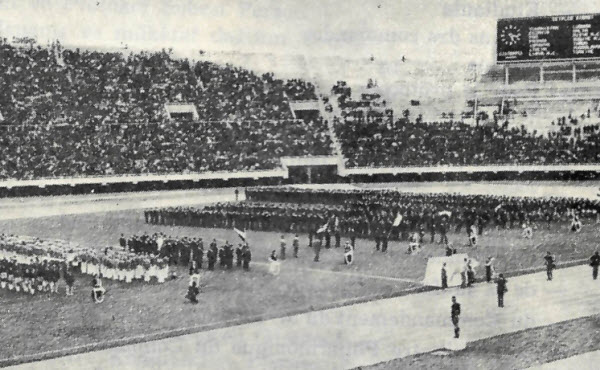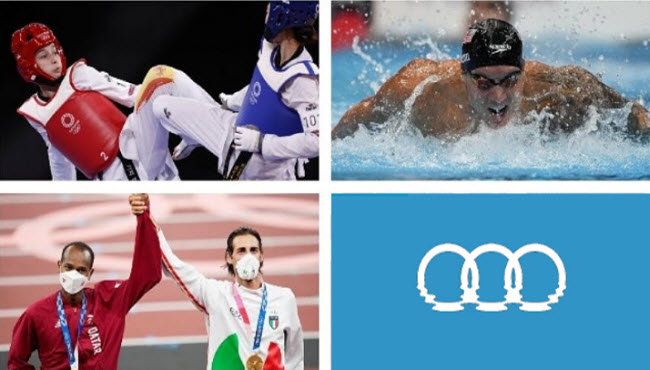The Mediterranean Games, a prestigious sporting event organized every four years under the supervision of the International Committee of Mediterranean Games (ICMG), brings together thousands of athletes from countries bordering the Mediterranean Sea. These athletes hail from three continents—Africa, Asia, and Europe—and compete in a variety of sports. The inaugural event took place in Alexandria, Egypt, in 1951. The Games aim to foster friendship and solidarity among Mediterranean nations, transcending differences in culture, religion, and language, in a region historically marked by conflicts and political turmoil.
Historical Background
The concept of the Mediterranean Games was first proposed during the 1948 Summer Olympics by Mohamed Taher Pasha, the President of the Egyptian Olympic Committee and Vice-President of the International Olympic Committee, with the support of Greek IOC member Ioannis Ketseas. From 1947 to 1949, various sporting events were already taking place in the Mediterranean region, including the Mediterranean Athletics Championships. This was followed by the Mediterranean Cup in football in 1949 and 1950.
The first official Mediterranean Games were inaugurated in October 1951 in Alexandria, Egypt, as a tribute to Mohamed Taher Pasha. The event featured competitions in 13 sports, with 734 athletes from 10 countries participating. The next edition was held in 1955 in Barcelona, Spain, where the decision was made to establish a supervisory body, the International Committee of Mediterranean Games (ICMG). Since then, the Games have been hosted by 12 countries—four in Africa (Egypt, Tunisia, Algeria, Morocco), six in Europe (Spain, Italy, Turkey, Yugoslavia, Greece, France), and two in Asia (Lebanon, Syria).

Athens, Greece, serves as the permanent headquarters of the ICMG. Regardless of who the president may be, the Secretary General is always of Greek nationality, honoring Greece’s significant role in the organization and promotion of the Games.
Initially, the Mediterranean Games were held one year before the Summer Olympics. However, since 1993, they have been scheduled to take place a year after the Olympics. To facilitate this transition, the French city of Languedoc-Roussillon hosted the Games just two years after Athens did.
Participating Nations

Today, 26 countries participate in the Mediterranean Games:
- Africa: Algeria, Egypt, Libya, Morocco, Tunisia
- Asia: Lebanon, Syria, Turkey
- Europe: Albania, Andorra, Bosnia and Herzegovina, Croatia, Cyprus, France, Greece, Italy, Kosovo, Malta, Monaco, Montenegro, North Macedonia, Portugal, San Marino, Serbia, Slovenia, Spain
Notably, Israel is excluded due to opposition from Arab nations, and Palestine also does not participate. Additionally, the United Kingdom, which controls Gibraltar, does not take part. Participation is not limited to countries bordering the Mediterranean; nations like Portugal, Andorra, and San Marino, which share cultural similarities with Mediterranean countries, are also included. Furthermore, countries that were once part of Yugoslavia—such as Kosovo, Serbia, and North Macedonia—compete individually following the country’s dissolution. The Greek Olympic Committee has even suggested that nine additional countries, despite not meeting geographical criteria, could be allowed to join, including Bulgaria and some Arab nations like Jordan and Iraq.
The emblem of the Mediterranean Games features three rings symbolizing the continents of Asia, Africa, and Europe, with the lower part of the rings appearing to dissolve into a wavy line, representing the Mediterranean Sea. During the closing ceremony, the flag is passed on to the next host city, which must be located on the Mediterranean coast, as no inland city, except for Casablanca (on the Atlantic coast), has ever hosted the Games.
Sports in the Mediterranean Games

Over the course of the Mediterranean Games’ history, 33 sports have been featured:
- Sailing (since 1955)
- Swimming (since 1951)
- Shooting (since 1951)
- Table Tennis (since 1971)
- Taekwondo (since 2013)
- Tennis (since 1963)
- Volleyball (since 1959)
- Water Polo (since 1951)
- Water Skiing (since 2009)
- Weightlifting (since 1951)
- Wrestling (since 1951)
- Fencing (since 1951)
- Hockey (since 1955)
- Football (since 1951)
- Golf (since 1983)
- Gymnastics (since 1951)
- Handball (since 1967)
- Judo (since 1971)
- Karate (since 1993)
- Roller Hockey (since 1955)
- Rowing (since 1951)
- Rugby (since 1955)
- Archery (since 1971)
- Athletics (since 1951)
- Badminton (since 2013)
- Basketball (since 1951)
- Beach Volleyball (since 2005)
- Bocce (since 1997)
- Boxing (since 1951)
- Canoeing (since 1979)
- Cycling (since 1955)
- Diving (since 1951)
- Equestrian (since 1955)
Mediterranean Games Winners
Here’s a table summarizing the hosting nations and the countries that have won the Games:
| Year | Host Country | Winning Country |
|---|---|---|
| 1951 | Egypt | Egypt |
| 1955 | Spain | Italy |
| 1959 | Lebanon | Italy |
| 1963 | Italy | Italy |
| 1967 | Tunisia | Italy |
| 1971 | Turkey | Italy |
| 1975 | Algeria | Italy |
| 1979 | Yugoslavia | Italy |
| 1983 | Morocco | Italy |
| 1987 | Syria | Italy |
| 1991 | Greece | Italy |
| 1993 | France | Italy |
| 1997 | Italy | Italy |
| 2001 | Tunisia | Italy |
| 2005 | Spain | Italy |
| 2009 | Italy | Italy |
| 2013 | Turkey | Italy |
| 2018 | Spain | Italy |
| 2022 | Algeria | Italy |
